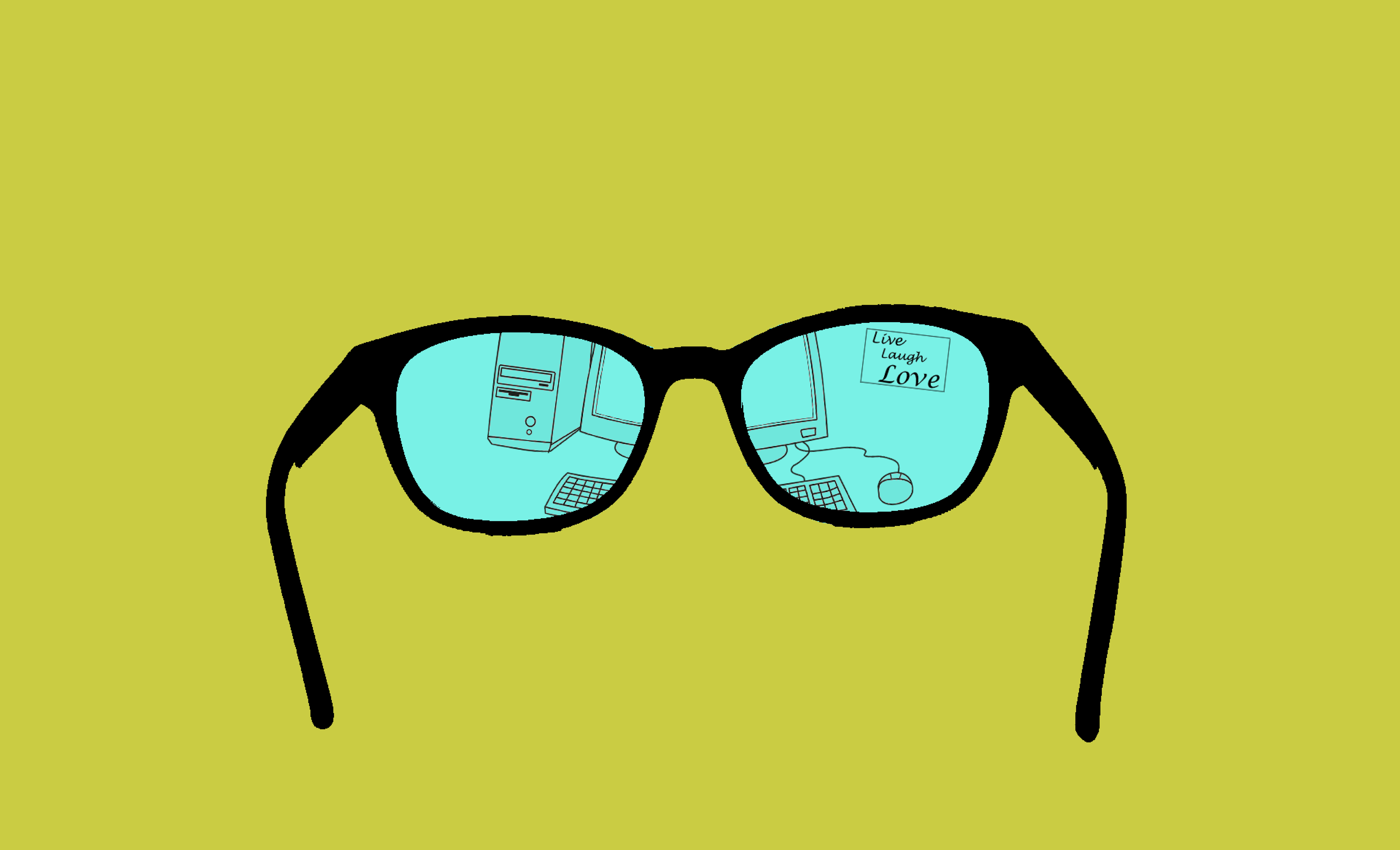I’m Obsessed with Blue Light and You Should Be Too
Who needs to see the world through rose-colored glasses when you can see everything with a yellow tint instead?!
The world of biohacking is overwhelming to say the least. From infrared saunas to intermittent fasting, there is no shortage of wellness fads out there telling us that we can live better and more optimally just by “hacking” certain elements in our daily routines.
“Sounds expensive!” my mom said to me when I explained to her the different components of the biohacking movement.
While she’s not wrong, there is one thing I can definitely say the biohacking movement got right. *Puts down newspaper to reveal* Blue light is bad!
So let’s talk about blue light!
WTF is Blue Light?
Okay, so get this: the sun literally has a broad spectrum of light that changes throughout the day to help signal different body functions. Crazy that we’re connected to nature, right?!
Basically, the sun emits blue light during the day, telling our bodies it’s time to produce cortisol, our very cute stress hormone. We’re all pretty afraid of cortisol in modern-day society because it’s directly tied to too much stress and chronic inflammation. But here’s the thing: beyond just a fight-or-flight response that helps us avoid danger, cortisol keeps us alert, focused, and most importantly productive.
So why is Blue Light bad?
Let’s get back to the sun. When the sun is emitting that blue light we just talked about, you’re also getting the benefits of the other lights on the spectrum, including the healing powers of infrared and red light. If we were all working outside, rising with the sun and winding down with the moon, we likely would feel incredible.
However, there is ANOTHER source of blue light affecting our lives. *Cough cough* Yes, those screens we’re all looking at 24/7 — which has only been made worse with this whole pandemic “thing!”
Our computers, TVs, phablets (who has these??), cellphones, and basically anything with artificial LEDs emit blue light. Unlike the sun, when we’re sitting in front of our screens all day, we’re only getting blue light without any of the balancing benefits from the other lights on the spectrum.
Now you can be upset about cortisol again.
Because we’re all being exposed to so much artificial blue light on a daily basis—from right when we wake up to right before we go to sleep—our bodies are being kept in stress mode because the blue light keeps signaling to our bodies that more cortisol is needed.
In the “(g)olden days,” before blue light was a thing, people would use candlelight and warm lighting in the evening after the sun went down. Red light (think: your himalayan salt lamp) tells the body it’s time to recoup, restore, and recover, prompting us to produce more melatonin and suppress cortisol levels. Melatonin (very famous) is a hormone we produce to help us sleep deeper and recover better, so that all of our essential organs, muscles, and tissues have a chance to function at the highest level.
Now you can be upset about cortisol again.
If we’re producing cortisol so often, that leads to worse sleep, worse recovery, more inflammation, and premature aging! (Ew!)
How do you counteract Blue Light?
“But I NEED my phone and my computer to make a living, more than ever!!”
Listen, I hear you, but this cause is not a hopeless one.
Even if you can’t avoid blue light right now (or maybe ever), there are some options:
- Download blue light blocking software for your computer — I love this one.
- Change your phone background to a red tint in the evenings — How-to here.
- Get as much natural light during the day as you can.
- Experiment with red light therapy (if you want to shell out some serious dough) — At-home option here.
- Try blue light blocking glasses when you’re using your computer. — My yellow-tinted ones here.
Excited for you and us! And remember: whenever anyone asks you what those silly tinted glasses are during a Zoom work call, simply say, “I’ve finally seen the light.”
This work is licensed under a Creative Commons Attribution-ShareAlike 4.0 International License.


